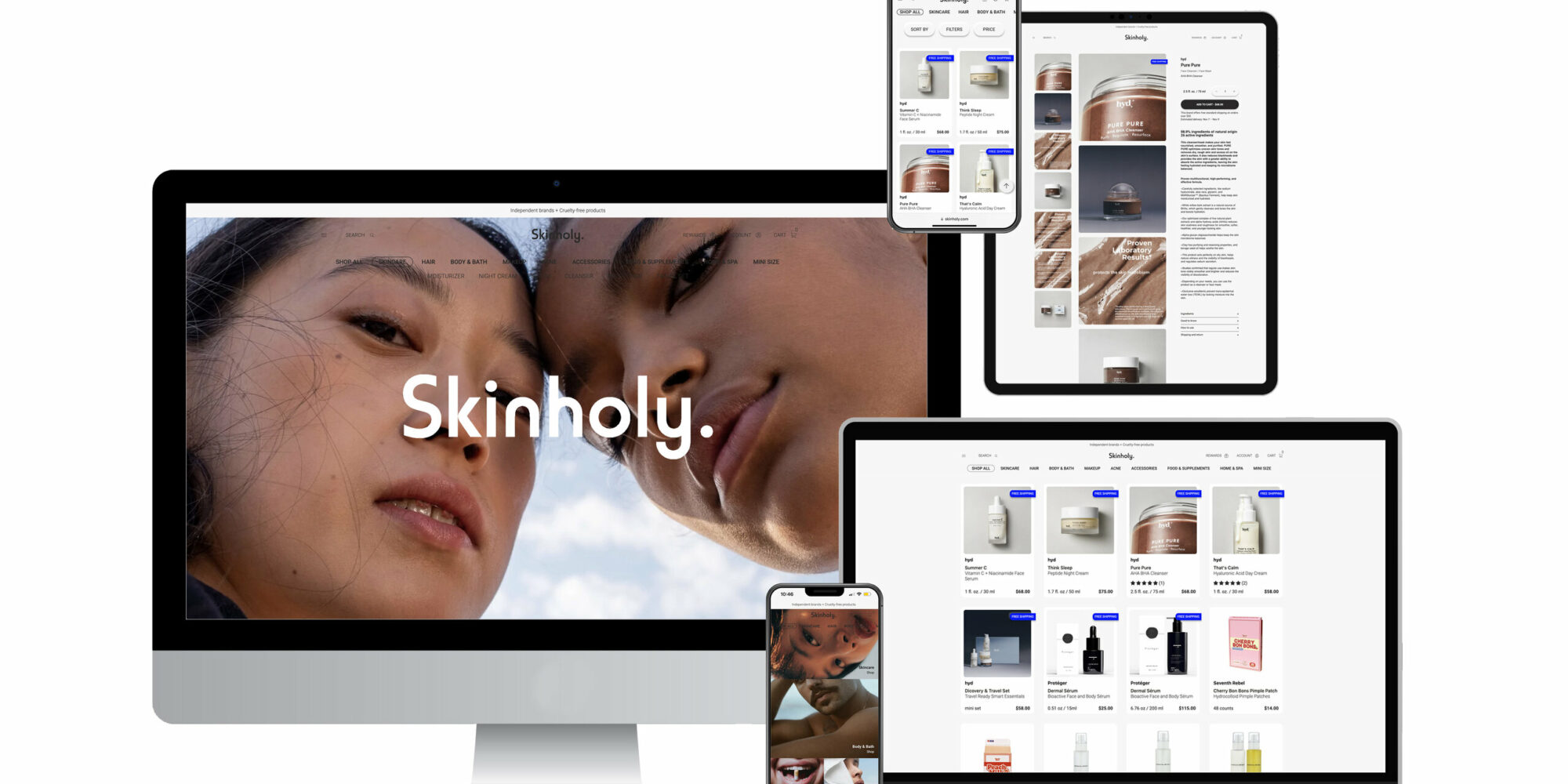
New Online Beauty Marketplace Skinholy Is Built To Spotlight And Support Emerging Beauty Brands
After Karolina Szafranska, a former architect and designer for Jimmy Choo, Diane von Furstenberg and WeWork, launched luxury microbiome skincare line Hyd last year, she quickly realized the cost of doing business at retail was too great for the young emerging brand. “It’s very difficult with limited resources and small teams to invest in inventory,” she says. “The commission in retail is also very difficult for young brands to share.”
Informed by Hyd’s experience, the idea for online beauty marketplace Skinholy soon took shape. Created by Karolina and her husband Filip Szafranski, it went live in July with emerging mission-driven and cruelty-free indie brands. “We know the pain of a small brand. We know how difficult it is, how much money you need to spend on advertising, on social media and everything else,” says Filip. “And we know what’s important when you want to present and promote your product on a platform.”
Skinholy offers over 40 products from 12 prestige beauty brands spanning skincare, hair, bath and body, tools and teas. Hyd, Seventh Rebel, Botanical Republic, Lendava, Proteger, Shayde Beauty, Masami, Palma de Salus, Metange and Chaiboy are among the brands. Most of them entered the market within the past two years.
Products sold by Skinholy are priced from for $14 pimple patches by Seventh Rebel and $25 tea blends by Chaiboy to $90 face creams by Synth Labs Intl. The most popular products on the platform in terms of page views include Proteger’s Body Serum and Hyd’s Summer C Vitamin C + Niacinamide Face Serum.
Filip, a former architect at WeWork who transitioned to data science three years ago, manages Skinholy’s data and analytics. Karolina oversees design and user experience. “We know how important data is not only for us, but for the brands,” says Filip. “So, we try to share our insights and statistics to help them build better products, increase their growth and better understand their customers.”

Several more brands are being onboarded into Skinholy’s assortment, a process Filip describes as “very fast,” with some brands going up on the marketplace in as little as 24 hours from the time negotiations are completed. Skinholy’s brand roster is expected to triple by the end of the year, but Karolina and Filip aim to keep its selection tightly curated. Filip says, “We believe this creates value and credibility for these new brands—and that’s what they really need, especially at the beginning of the retail journey.”
Karolina is busy building Skinholy’s makeup category. The category trails skincare and bath and body in clicks, but Seventh Rebel’s blending sponge is the sole product in it listed on the marketplace. “We are looking for brands that have a unique story behind the products,” says Karolina. “But what is also important for us at the moment is the shipping. We want to have brands that can easily and quickly ship products within the States.”
Sexual wellness, menopause, oral care, children’s and fragrance brands are on Skinholy’s radar, too. “We believe in our mission, and we believe that what we are doing is right and the trends are in our favor,” says Filip. “More and more cool beauty brands just keep popping up on the market.”
Rather than a traditional wholesale model, Skinholy has a marketplace model, where brands operate as sellers that handle shipping to customers. The marketplace model was easier for the Szafranskis to swing. They declined to disclose the specific amount they invested to develop Skinholy. “It was significant,” says Filip. “I think many people would say we are crazy to invest the kind of money we did.”
Along with enabling them to bypass large inventory investments, Karolina and Filip point to flexibility and the capacity to support a wide range of products as key benefits of the marketplace model. “We are not limited by space or by budget, so we can add brands to the platform much quicker,” says Karolina. “Plus, we are able to respond to current trends in the beauty industry much faster this way.”
There are advantages for brands as well, says Filip. “Skinholy is a very low risk investment. Brands don’t need to invest any money upfront, and we don’t have any hidden fees,” he says. “They don’t have to over-manufacture or over-produce stock that may not sell either. This allows us to charge them a lower commission on the sale of their product, which helps brands to grow faster and better.”
Many retail analysts are predicting marketplace models will proliferate over the next several years. They’re rising at large retailers such as Macy’s, Nordstrom, Kroger and Best Buy that are following Amazon’s trend-setting steps. Smaller e-tailers have longed turned to the model to cut down on go-to market expenses.
Karolina and Filip anticipate customer service will be one of the bigger challenges they face running an online marketplace that’s scaling. “The resources of our team are very limited,” says Karolina. “So, we’re gearing up now to fundraise to help support different parts of the business like customer service.”
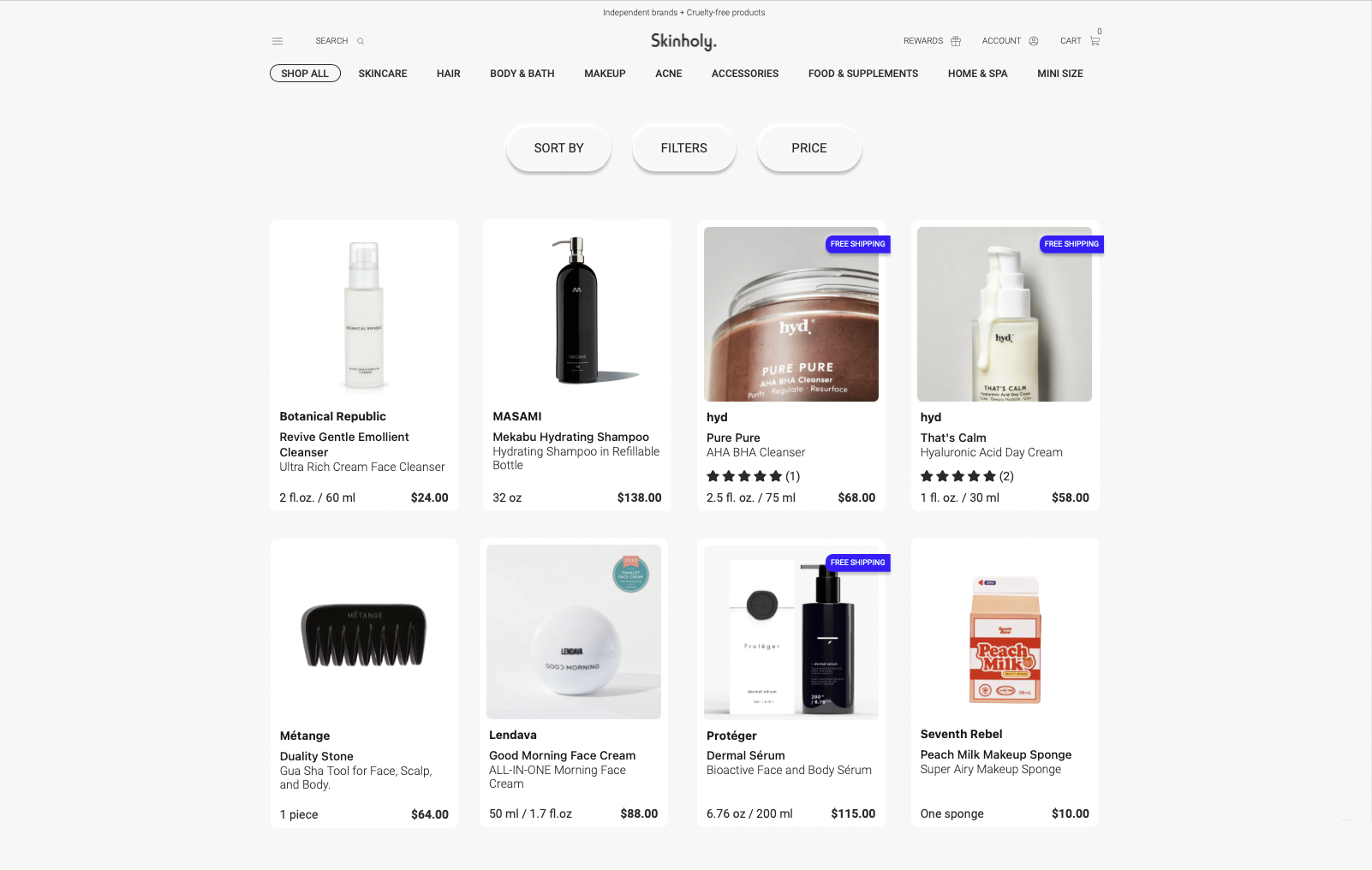
On top of customer service, Skinholy expects to allocate funding toward web development and paid marketing efforts. “Development is where we pour a lot of our money right now,” says Filip. “The platform has to work otherwise it’s not going to fly.”
Skinholy is principally depending on its brand partners to get the word out about it presently. Karolina and Filip report in-bounds from brands are increasing, and customers are beginning to find the platform via social media reposts. Filip says, “The more brands we have, the more people we will hear about us.”
Skinholy plans to amplify educational content and founder interviews to improve its search ranking. Future marketing efforts will venture into influencer marketing and brand giveaways. Ingredient- and values-specific search filters will be implemented to facilitate the discovery of indie brands that match consumers’ preferences.
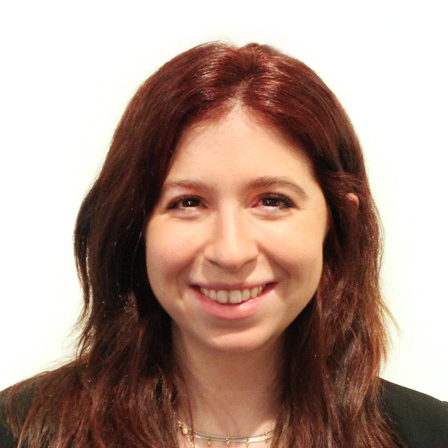
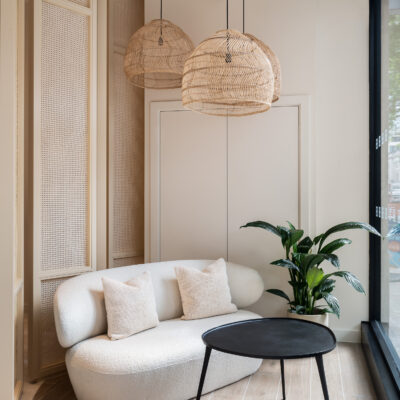
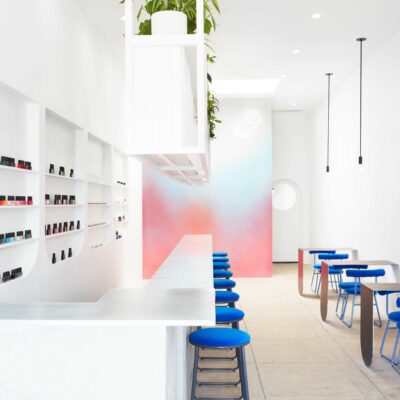
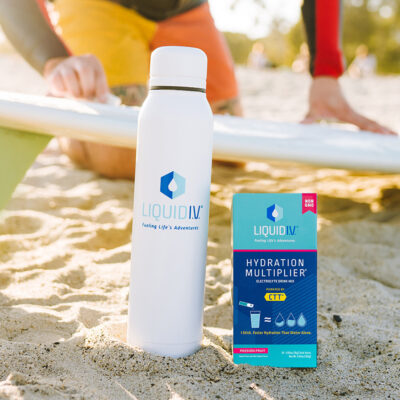

Leave a Reply
You must be logged in to post a comment.